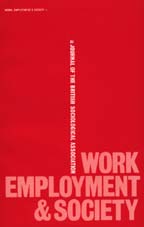No CrossRef data available.
Article contents
Deconstructing Classes: critical comments on the revised social classification
Published online by Cambridge University Press: 01 December 1998
Abstract
Rose and O'Reilly, in their article elsewhere in this issue (1998) and in their recent book (1997), give an account of their construction of a revised set of social classes, a social classification. In this comment I propose to show that they do not achieve what they set out to do, that their attempted justification of their procedure is flawed, that their dependence on definition in terms of economic contractual relations fails to take account of social processes and therefore, and most importantly, that a conceptualisation of British society in terms of social classes is inadequate. Therevision exercise depends, substantially and quite explicitly, on the work of Goldthorpe 1 , so I shall concentrate on the relations between the latter's contribution to the book (Chapter 3 on conceptual and operational issues: Goldthorpe 1997), their own contribution to that volume (Chapter 5 on criterion validation: O'Reilly and Rose 1997) and the present article.
The main problem, as we shall see, is the idea of a social classification. Nothing in the analyses considered demonstrates the existence of social classes; rather the situation is one of a set of criteria that are fairly well inter-related - though not sufficiently well to define a single service relationship/labour contract continuum - and that vary, or are differentially applied, by position in a broader social hierarchy.
- Type
- COMMENTARY
- Information
- Copyright
- © 1998 BSA Publications Ltd




